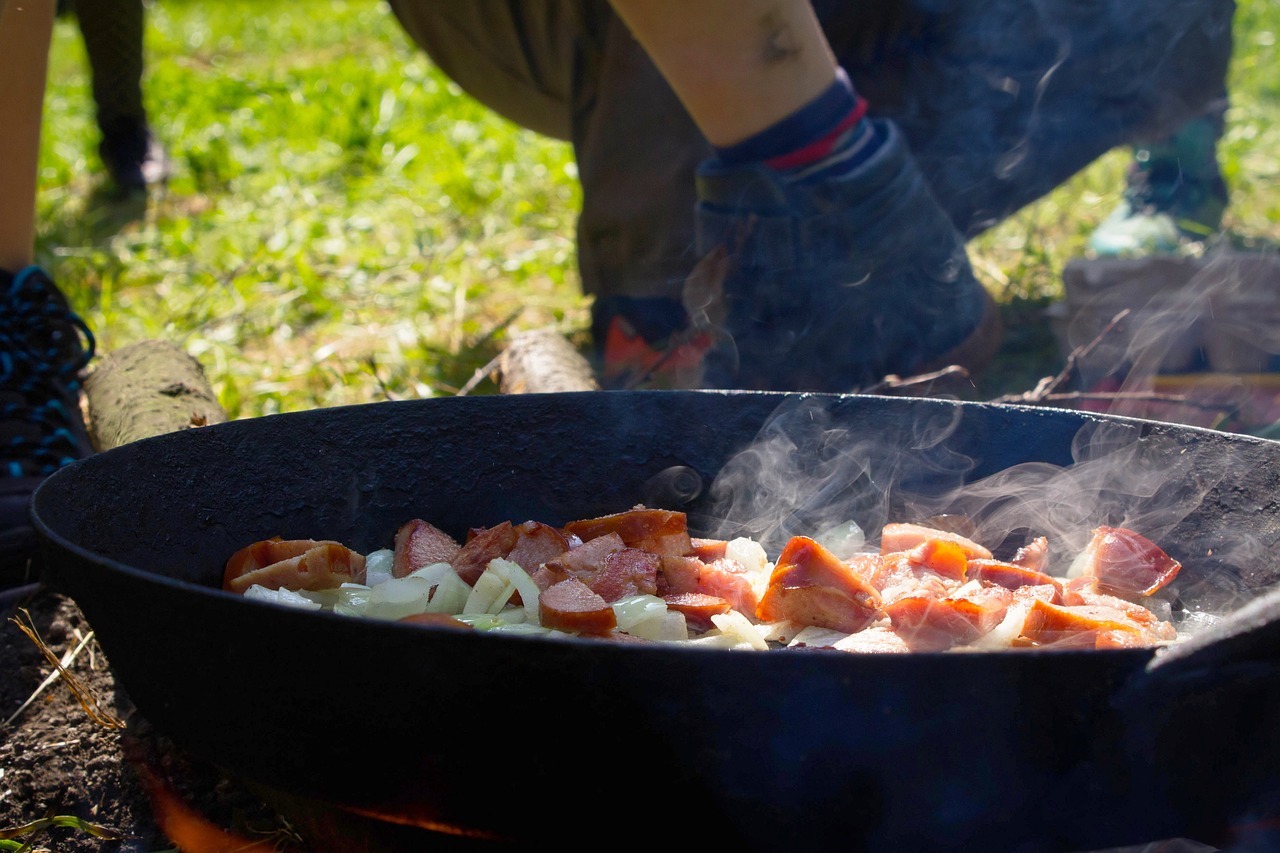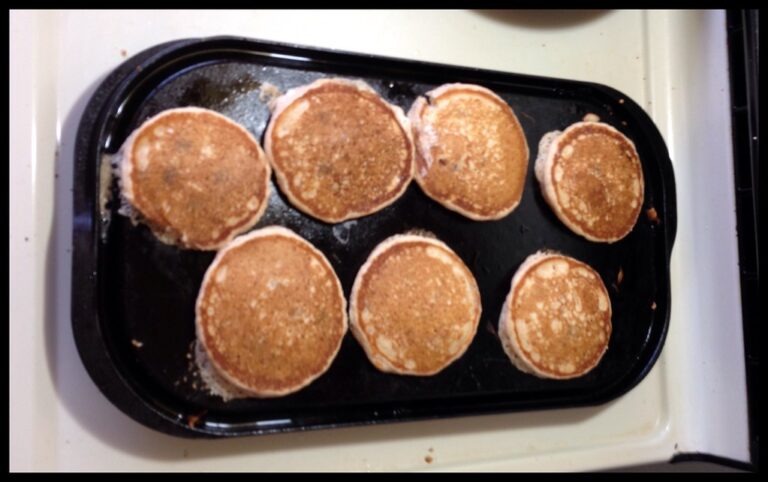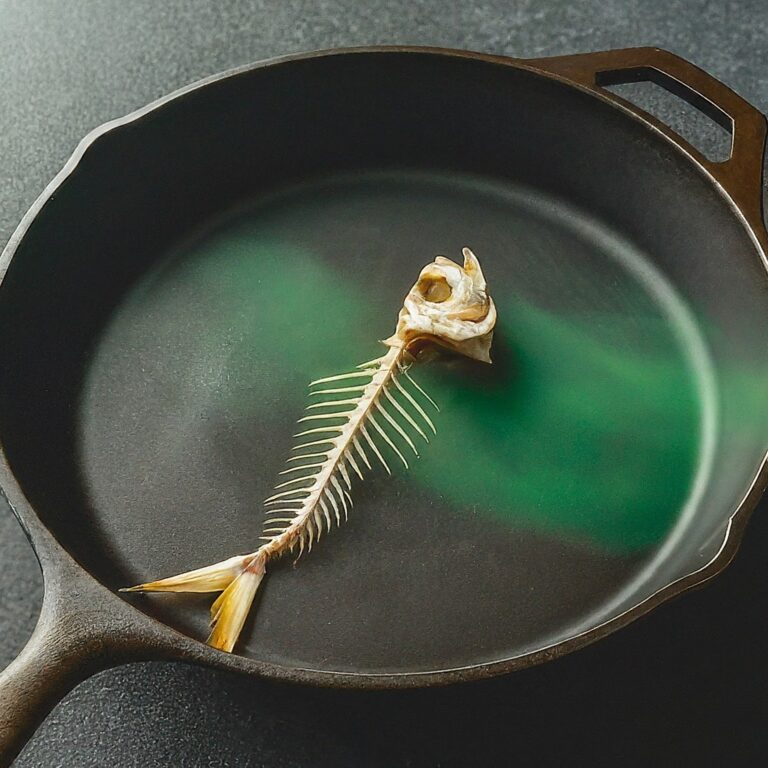Are your pans constantly burning your food? Don’t worry, we’ve got you covered.
In this article, we’ll explore the common culprits behind pan burning and provide you with proactive steps to prevent it.
So, if you’re tired of dealing with charred meals, stay tuned. We’re about to reveal the secrets to keeping your pans in top shape and your food perfectly cooked.
Say goodbye to burnt dinners once and for all!
Key Takeaways
- Use gentle cleaning solutions designed for cookware to avoid leaving behind a residue that burns and sticks to the pan.
- Use enough oil to create a thin layer on the pan’s surface and choose oils with high smoke points like canola or avocado oil to prevent food from sticking and burning.
- Precise temperature control is essential when cooking on high heat to prevent burned food and damaged pans.
- Proper pan selection is important, considering factors like heat conductivity and durability, such as stainless steel for even heat distribution, non-stick pans for low-fat cooking and easy cleanup, and cast iron for heat retention and searing/browning.
Common Culprits for Pan Burning
If your pans are constantly burning, it’s likely due to a few common culprits.
One of the main reasons for burnt residue on your pans is the use of improper cleaning solutions. When you clean your pans with harsh chemicals or abrasive cleaners, they can leave behind a residue that easily burns and sticks to the surface. To avoid this, make sure to use gentle cleaning solutions specifically designed for cookware.
Another common culprit for pan burning is inadequate oil or poor lubrication. When you don’t use enough oil or use a type of oil with a low smoke point, your food can easily stick to the pan and burn. To prevent this, make sure to use enough oil to create a thin layer on the surface of the pan. Additionally, choose oils with high smoke points, such as canola or avocado oil, which can withstand high temperatures without burning.
High Heat: A Recipe for Disaster
Using high heat can easily lead to burned food and ruined pans. When cooking on high heat, it’s important to have precise temperature control to avoid scorching your food and damaging your pans. One way to prevent burning is by using oil in your cooking. The role of oil is to create a barrier between the food and the hot surface of the pan, preventing it from sticking and burning. The oil also helps to distribute the heat evenly, ensuring that the food cooks properly. However, it’s crucial to choose the right oil with a high smoke point, such as canola or vegetable oil, to avoid it from burning and releasing harmful smoke. By maintaining temperature control and using the right oil, you can enjoy delicious, perfectly cooked meals without the fear of burning your pans.
| Temperature Control | The Role of Oil |
|---|---|
| Avoid scorching | Prevent burning |
| Precise cooking | Barrier |
| Even heat distribution | Non-stick |
| Proper cooking | Smoke point |
| Delicious meals | Harmful smoke |
The Importance of Proper Pan Selection
When selecting a pan, it’s important to consider factors like heat conductivity and durability. These factors can greatly affect your cooking experience and the outcome of your dishes. Here are a few key points to keep in mind:
- Pan material:
- Stainless steel: Provides even heat distribution and is durable.
- Non-stick: Ideal for low-fat cooking and easy cleanup.
- Cast iron: Retains heat well and great for searing and browning.
- Pan size:
- Small pans are perfect for single servings or small dishes.
- Medium pans are versatile and can accommodate a variety of recipes.
- Large pans are ideal for cooking for a crowd or making big batches.
Cooking Techniques That Lead to Burning
To prevent your food from getting charred, it’s important to adjust your cooking techniques. Burning food not only ruins the taste and texture but can also be a waste of time and ingredients. By properly managing your cooking time and exploring flavorful alternatives, you can avoid the disappointment of burnt meals. Take a look at the table below for some helpful tips:
| Cooking Technique | Problem | Solution |
|---|---|---|
| High Heat Cooking | Food burns quickly | Lower the heat and cook for a longer duration |
| Lack of Moisture | Food dries out and burns | Add liquid or cover the dish while cooking |
| Neglecting Stirring | Food sticks to the pan and burns | Stir frequently to distribute heat evenly |
Proactive Steps to Prevent Pan Burning
Ensure that you’re proactive in preventing your food from getting charred by making adjustments to your cooking techniques. Here are some steps you can take to prevent pan burning:
Temperature control:
- Preheat your pan properly before adding any ingredients.
- Adjust the heat to medium or low, depending on the recipe.
- Avoid using high heat, as it can quickly burn your food.
Using the right amount of oil:
- Coat the pan evenly with oil before cooking.
- Use oils with high smoke points, like vegetable or canola oil.
- Avoid overcrowding the pan, as it can lead to uneven cooking and burning.
Pay attention and stay vigilant:
- Stay close to the stove while cooking to monitor the temperature and prevent burning.
- Stir or flip your food regularly to ensure even cooking and avoid sticking.
Conclusion
In conclusion, it’s important to understand the common culprits for pan burning, such as high heat and improper pan selection.
By using the right cooking techniques and taking proactive steps, you can prevent your pans from burning.
Remember to adjust heat levels, choose the appropriate pan for your dish, and stay attentive while cooking.
With these precautions, you can enjoy delicious meals without worrying about burnt pans.


